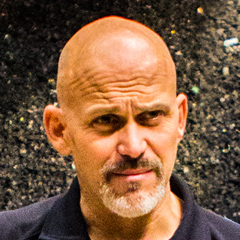
Protecting Houses of Worship
Rob PincusDescription
A violent attack at a house of worship naturally has a big effect on the community in which it takes place. Why are these attacks occurring?
A recent PDN article by Pablo Birriel discusses the reasons and the concept of ministries of defense to protect houses of worship.
Attacks on Sacred Spaces
Among the theories postulated as to why places that were formerly considered immune to violence are now coming under attack include the scandals that have come to light regarding some prominent churches and worship leaders. Other causes may be the rise of non-traditional lifestyles, and radicalization of some group members who perpetrate violence against other groups. Another factor is indifference — as more people fall away from organized religion, they do not view houses of worship as sacred ground.
What’s the solution?
Ministry of Defense
This is a group of people who are part of the congregation and have specifically taken on the role of defending that church. The ways they can do that are varied. They can formally train as a group to respond to an immediate situation happening during any church service. They can educate: communicate not only with members of the congregation but with the community at large.
The ministry of defense can also engage in specific training that will help everyone in the congregation be prepared to come to them with problems. Let people know what pre-attack indicators might be and encourage them to come to church leaders or members of this security detail if they observe anyone behaving oddly.
The ministry of defense is one way to make your house of worship a safe space again.
Jesus asked his disciples, before he sent them out if they had swords and if not, to sell their cloaks and buy some. Peter didn't borrow a sword to cut off that ear when they came to arrest Jesus.
Our church has had security/safety team/ministry for about ten years now. In the Old Testament book of Nehemiah, the builders of the wall also carried a sword to defend against possible attack. There are many things to think about concerning carrying at church....State Laws in the state in which you reside...to do you need permission from the church leaders? What about church policy and insurance? Our church has dealt with all these issues. Many on our team are current or retired LEO. There is a lot to think about when carrying in church. We are accountable for our shots. I have often been asked by CC holders about carrying at church. This is a potential problem as in the event of an armed attack, an armed security team member could take a CC holder as the threat. Just food for thought... Above all else we need to remember one very important thing...the solution to everyone's problem is a personal relationship with the Lord Jesus Christ!
Interesting topic. As a member of a security group we formed after many threats we're received by our pastor. These came as a result of simply preaching the Word of GOD and streaming on our website. The threats raised were varied from insulting and angering Muslims to the militant LGBT. All with the purpose of intimation and silence.
As a member of my church security team, I introduced the PDN video series on dealing with an active shooter. We have been fortunate to understand just what Rob was saying, houses of worship are not viewed in the same light as sacred places that they once were, and our security team is always armed with concealed firearms. The biggest challenges that we face are having what we feel are enough security team members to adequately defend the church property and congregation and dealing with those members who do not think that certain doors should be locked during service. Shannon C
Thank you for bringing up this issue. I am a pastor, martial artist, and security professional. Many times when the subject of House of Worship violence is raised, the pastors and church leaders do not play much attention to the matter. If we just pretend it is not a reality, then the problem will go away. I also hear, "this would never happen here" as a defense from some pastors. The topic of having an armed detail in the church is hottly debated. Some feel that armed church members would be part of the problem and not in sync with the non-violence that many religious groups subscribe to. There is another group that says, firearms are a needed part of the security detail for any group or building. A middle group says, less lethal means (stick, stun gun, PR24) are ok, but as long as we do not use firearms. My staff and team is trained in many aspects of personal protection and we take all threats seriously, on worship days and other days as well. Stay Safe Jeremy Bays